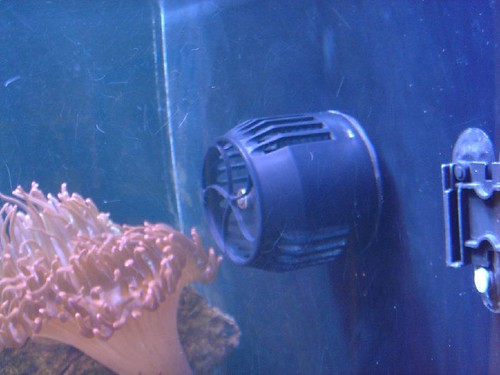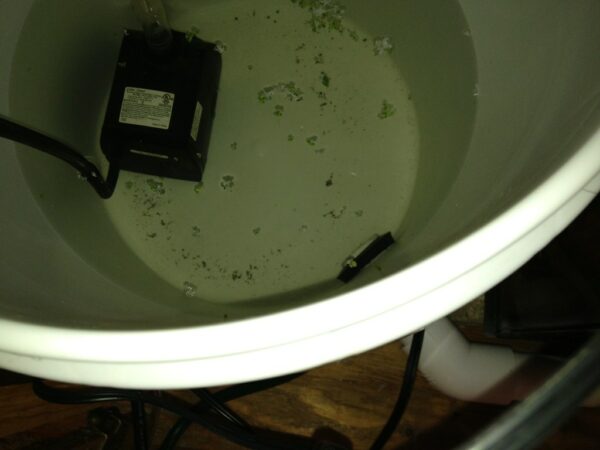Choosing the perfect water pump for your aquarium is a crucial decision that affects the health and well-being of your aquatic environment. Here are key factors to consider:
- Tank Size and Water Volume: The size of your tank determines the pump's required flow rate. A good rule of thumb is to choose a pump that can circulate the entire volume of your tank at least 4-5 times per hour. For instance, a 50-gallon tank would need a pump with a flow rate of at least 200-250 gallons per hour (GPH).
- Type of Aquarium (Freshwater or Saltwater): Saltwater and reef aquariums often require more powerful circulation to mimic natural ocean currents and support the live rock and coral. In contrast, freshwater tanks generally need gentler flow.
- Inhabitants' Needs: Consider the needs of your fish and plants. Some species prefer strong currents, while others thrive in still water. Research the specific requirements of your aquarium's inhabitants.
- Head Height: This is the vertical distance the water needs to be pumped. A pump loses power as it pumps water upwards. Ensure the pump you choose has enough power to pump water to the highest point in your setup.
- Noise Level: Some pumps can be noisy. If your aquarium is in a living area or a bedroom, look for a quieter pump to minimize disturbance.
- Energy Efficiency: An energy-efficient pump will be more cost-effective in the long run. Consider the pump’s wattage and operating costs.
- Reliability and Maintenance: Look for pumps from reputable brands known for durability. The pump should also be easy to clean and maintain.
- Additional Features: Some pumps come with extra features like variable flow rates, wave-making capabilities, or integrated filtration systems. These can be beneficial depending on your specific requirements.
Remember, the right water pump is vital for maintaining a healthy and stable environment in your aquarium. It's worth investing in a quality pump that meets all your tank's needs.

Water Pump Uses
Water pumps serve various essential functions in aquariums. They help circulate water to ensure even distribution of heat and oxygen, power filtration systems, drive protein skimmers, and create currents that simulate natural water movement. Understanding the multiple uses of water pumps can help you select the right one for your aquarium setup.
Choosing a Pump
Selecting the appropriate water pump for your aquarium is crucial. Consider factors such as the pump's flow rate, head height, energy efficiency, and noise level. Research different pump models and their specifications to find the one that best suits your aquarium's needs.
Air Pump Uses
Air pumps play a vital role in aquariums by oxygenating the water and creating surface agitation. This helps improve gas exchange and provides oxygen to your fish and beneficial bacteria. Air pumps are commonly used in conjunction with air stones or air-driven accessories to enhance the aeration and circulation of water in the tank.
Setting Up Your Pump
Properly setting up your water pump is essential for its effective and safe operation. Ensure that it is securely placed in the aquarium, properly connected to tubing and filtration systems, and positioned to create the desired water flow. Regular maintenance, such as cleaning the pump and impeller, is also essential to keep it running smoothly.
How to choose water pumps for aquariums
Selecting the right water pump for your aquarium involves considering several factors. These include your tank's size, the type of filtration system you use, and the specific needs of your aquatic plants and animals. Researching different pump options and consulting with experienced aquarists can help you make an informed choice.
Choose the best water pump for your aquarium
When it comes to choosing the best water pump, it's essential to prioritize the needs of your aquarium ecosystem. Ensure that the pump's flow rate matches your tank's size and the requirements of your filtration system. Additionally, consider the noise level, energy efficiency, and ease of maintenance when making your decision.
How do you check a water pump?
Regularly checking your water pump is essential to detect any issues early and prevent potential problems. Inspect the pump for signs of wear or damage, listen for unusual noises, and monitor water flow. Additionally, clean the pump and impeller as needed to maintain optimal performance.
How to do in an emergency if the water pump is broken
In the event of a water pump failure, taking immediate action is crucial to prevent harm to your aquarium's inhabitants. First, unplug the malfunctioning pump to ensure safety. Then, quickly set up alternative aeration and filtration methods, such as battery-operated air pumps or sponge filters, to maintain water quality and oxygen levels until the pump issue is resolved.
Know Your Options
Before purchasing a water pump for your aquarium, familiarize yourself with the available options. Consider whether you need a submersible or external pump, the pump's power source (electric or battery-operated), and whether it should be adjustable for flow rate and water direction. Knowing your options will help you make an informed choice.
Decide on a Filtration System Beforehand
Choosing the right water pump also depends on your aquarium's filtration system. Determine whether you're using a canister filter, sump, or internal filter, and ensure that the pump you select is compatible with your chosen filtration method. Proper integration of the pump and filter system is essential for efficient water circulation and filtration.
Match Flow Rate to Your Tank Size
Select a water pump with an appropriate flow rate that matches the size of your aquarium. Overly powerful pumps can create excessive water movement, which may stress or harm your fish. Conversely, inadequate flow can result in poor circulation and water quality issues. Choose a pump with an adjustable flow rate if possible to fine-tune water movement.
Consider Compatibility With Other Devices
Take into account any additional devices or accessories in your aquarium setup, such as protein skimmers, UV sterilizers, or reactors. Ensure that the water pump you choose is compatible with these devices and can provide the necessary flow and circulation for their optimal performance. Proper coordination between components enhances overall aquarium function.

